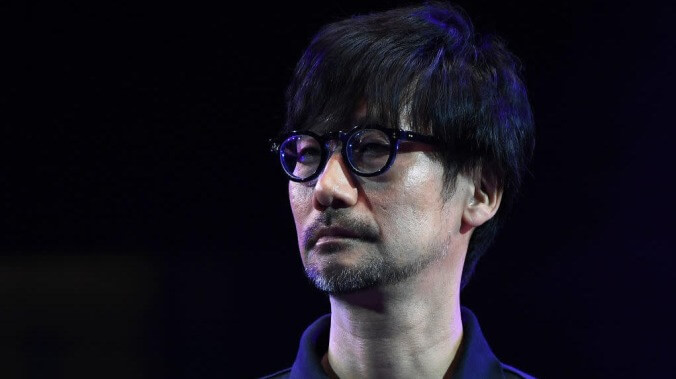Hideo Kojima, the writer, director, and designer who’s led the creation of video games like Death Stranding and the Metal Gear Solid series, creates work that, for better or worse, is unlike anything else in the medium. The inspiration behind a lot of his games is pretty easy to spot: Metal Gear borrows heavily from ‘80s action movies and Death Stranding owes plenty to Children Of Men, Stalker, 2001, and a smattering of post-war Japanese fiction. And yet, despite making clear reference to the media that informs his work, there are a number of design through-lines that turn Kojima’s influences into something uniquely his own.
In a New York Times profile by Adrian Chen, Kojima discusses the images and personal memories that inspired the themes and design of the best known games he’s worked on. When asked “what of his life” made its way into Death Stranding and Metal Gear, Kojima responds that he’s “always had this habit of feeling lonely,” which is why he “[creates] these things in the first place.” Chen describes Kojima’s youth in Kobe, Japan, where he “became a latchkey kid” who “would turn on all the lights and the TV for company” after getting home to “an empty house after school,” often watching travel shows that helped him to learn more “about the world outside Japan.”
Kojima says Death Stranding is meant to capture some of that experience by telling a story he hoped would resonate in the time of a fractured European Union and a Trump presidency, with a world that’s “connected by the internet, where people are very lonely.” That kind of loneliness found matching imagery when Kojima first heard, “about 10 years ago,” of “the phenomenon of mass stranding, in which dolphins and whales mysteriously beach themselves in huge numbers.” Later, he’d use this as inspiration for an idea regarding “a melancholy image of a man stranded” on a beach and a game where that character traverses an eerily empty landscape connecting with others mainly through holograms and tools left behind by other invisible, internet-enabled players.
There’s plenty more in the full article about the ways in which Kojima’s background has influenced his games, including how his film-loving father’s death when he was 13 led him to work in games and that hearing “harrowing stories of wartime Tokyo … from his parents” guided Metal Gear’s narrative and design emphasis on non-violence “partly as a political choice.”
Send Great Job, Internet tips to [email protected]

